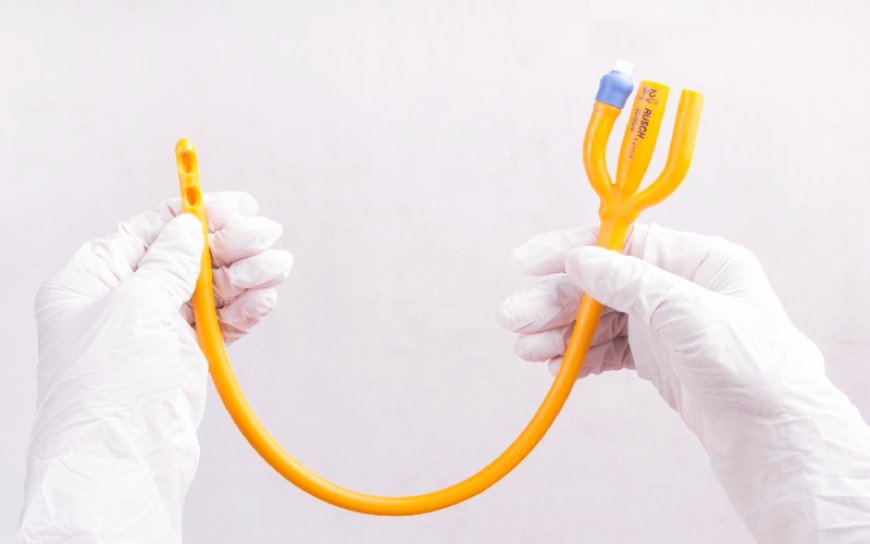Understanding Cannula and Catheter: Essentials of Modern Medical Care

When it comes to efficient and safe medical care, having the right equipment is essential. Among the most frequently used tools in hospitals and home healthcare are the cannula and the catheter. These devices play a critical role in delivering medication, fluids, or even monitoring vital signs—all while ensuring patient comfort.
In this blog, we’ll explore how each device works, where they are used, and what features you should look for when selecting high-quality options.
What is a Cannula?
A cannula is a thin tube inserted into the body, typically into a vein or under the skin, to administer fluids, draw blood, or provide medication. Most commonly, you’ll find it used in intravenous (IV) therapy. It allows a healthcare provider to access the bloodstream without repeatedly inserting a needle.
Types of Cannulas and Their Uses
There are several types of cannulas, each suited for a different purpose:
Intravenous Cannula
Used for IV fluids, medications, or blood transfusions. These are often colour-coded for different sizes.
Nasal Cannula
Designed to deliver oxygen directly to the patient’s nose. It’s commonly used in hospitals, ambulances, and for home care.
Arterial Cannula
Placed in an artery, this type is used for blood pressure monitoring and arterial blood sampling in intensive care settings.
Key Features to Look For
When choosing a cannula, especially for clinical or long-term use, the following features are important:
- Flexible wings for secure placement and comfort
- Colour-coded ports for easy identification
- Soft catheter tip to reduce trauma to the vein
- Hydrophobic filters to prevent air entry
- Needle safety mechanisms to minimise accidental injuries
High-quality cannulas are sterile, latex-free, and designed for single use, ensuring the highest standard of hygiene and patient safety.
The Role of the Catheter
While a cannula is mostly used for intravenous access, a catheter serves a broader range of functions. It is a flexible tube inserted into the body to allow drainage, fluid delivery, or access to internal cavities.
There are many types of catheters depending on their purpose:
● Urinary catheters for draining the bladder
● IV catheters for administering medications
● Central venous catheters placed in larger veins for longer treatments
● Peripheral catheters for short-term use in veins near the surface
How Cannula and Catheter Work Together
In many clinical scenarios, a cannula is used as an introducer for a catheter. Once the cannula is inserted into the vein, the catheter is threaded through it. The cannula is then removed, and the catheter remains in place for ongoing access. This method reduces patient discomfort and makes treatment more efficient.
For example, in an IV setup, a cannula is inserted first, and then the IV catheter delivers fluids or medications. This collaboration between the two devices helps reduce infection risk and improves treatment precision.
Benefits of Using Cannulas and Catheters
Both devices have revolutionised modern medicine with their convenience and efficiency. Here’s why:
Minimised Needle Use
Once a cannula or catheter is inserted, there’s no need for repeated needle pricks, especially beneficial for long-term patients.
Reduced Risk of Infection
Sterile, single-use designs lower the chance of introducing bacteria into the body.
Comfort for the Patient
Modern materials and ergonomic designs make these devices more comfortable, even during extended use.
Quick Access to the Circulatory System
Whether for hydration, medication, or nutrition, healthcare providers can act faster and more effectively.
Home Healthcare Use
Today, cannulas and catheters are not just confined to hospitals. With the rise of home-based care, these devices have become accessible to trained caregivers and families as well.
Nasal cannulas are commonly used by patients requiring supplemental oxygen at home. Similarly, urinary catheters and IV catheters may be used under medical supervision for chronic patients, post-surgical care, or palliative care.
Safety Tips for Usage
Whether you’re a healthcare provider or caring for a loved one at home, it’s vital to follow best practices:
● Always use sterile equipment
● Change cannulas and catheters as per medical guidelines
● Monitor for signs of infection such as redness, swelling, or discomfort
● Ensure proper disposal of used devices to maintain hygiene
Innovation in Design
Advancements in medical technology have greatly improved the usability and safety of cannulas and catheters. Newer models come with built-in safety locks, self-sealing valves, and ultra-smooth materials to reduce patient trauma.
In addition, many catheters now come with antimicrobial coatings to prevent the growth of bacteria, especially important in long-term care.
Choosing the Right Supplier
Quality makes a difference when it comes to medical equipment. Reputable suppliers offer:
● CE-certified products
● Latex-free options for sensitive skin
● Multiple sizes to suit patients of all ages
● Transparent packaging for quick identification
Always look for brands with strong quality control and a proven track record in the healthcare sector.
Final Thoughts
Whether used in critical care, routine hospital settings, or home-based health management, the cannula and catheter are indispensable medical devices. They make life-saving treatments easier to administer and significantly improve patient comfort.
With ongoing innovations and growing awareness, these tools are becoming more effective and user-friendly. By understanding their uses, types, and benefits, you can make informed choices that ensure better health outcomes and comfort for patients of all ages.
What's Your Reaction?




























































